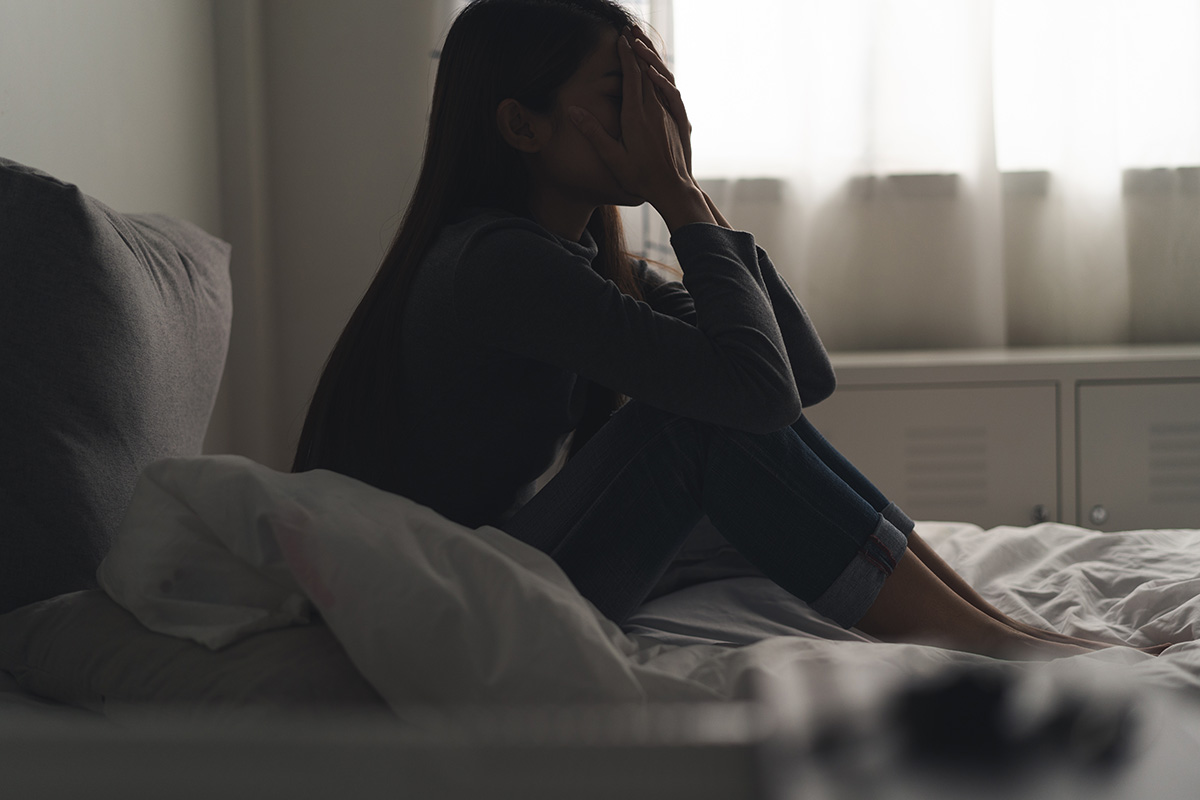We hear a lot of talk about depression, yet it is still widely misunderstood. People often say they are depressed when what they are truly feeling is sadness. This generalization of the term has contributed to the many misconceptions about clinical depression, including the belief that people should just be able to snap out of it. The depression treatment program at Gulf Breeze Recovery offers multiple levels of care to meet you where you are in your depression. Our holistic approach utilizes evidence-based treatment modalities to provide comprehensive depression treatment. Contact us at 833.551.2304 to learn more.
Understanding Depression
Depression is a complex mood disorder that causes persistent sadness and a profound loss of interest in things once enjoyed. It impacts how you think, feel, and behave and can interfere with daily functioning. Depression is the leading cause of disability worldwide and affects millions of Americans annually. Without treatment, depression typically worsens over time and can lead to the development of other diseases, including anxiety and substance use disorders. When this happens, dual diagnosis treatment is required.
There are numerous types of depression, each with its distinct characteristics. While depression impacts everyone differently, some common signs and symptoms are used for diagnostic purposes. These include:
- Sadness or depressed mood most of the day
- Insomnia or excessive sleep
- Significant weight loss, weight gain, or changes in appetite
- Fatigue or loss of energy
- Loss of interest or pleasure in things that were once enjoyed
- Feelings of hopelessness, worthlessness, or excessive guilt
- Problems concentrating or making decisions
These symptoms need to occur almost every day for at least two weeks for diagnosis. Recurring thoughts of death or suicide, having a suicide plan, or a suicide attempt are also significant symptoms.
Types of Depression
Life is full of ups and downs, and our emotions change to reflect this. Everyone feels down occasionally, but the feeling usually passes as you process the events causing it. However, people with clinical depression feel chronically or persistently sad and often cannot identify a reason why.
There are several distinctly identified types of depression:
- Major depressive disorder (MDD) – Also called major depression or clinical depression, MDD has intense or overwhelming symptoms lasting longer than two weeks. MDD can be characterized by anxious distress, melancholy, agitation, or a combination of these.
- Persistent depressive disorder (PDD) – Also referred to as dysthymia, the symptoms of PDD are less severe than in MDD but are experienced for two years or longer.
- Bipolar disorder – Individuals with bipolar experience significant shifts in mood, energy, activity levels, and concentration that impact daily functioning. Moods shift between extremely high (manic) episodes and extremely low (depressive) episodes.
- Seasonal affective disorder (SAD) – SAD is a period of major depression that begins and ends during a specific season every year for at least two years. SAD is more common in the fall & winter months.
- Psychotic depression – Individuals with psychotic depression have symptoms of MDD and psychosis, including paranoia, delusions, and hallucinations.
- Peripartum depression – Previously called postpartum depression, this is marked by symptoms of MDD that can occur during pregnancy and up to one year following birth.
Other common forms of depression include premenstrual dysphoric disorder (PMDD) and situational depression. Also referred to as stress response syndrome, situational depression is not a clinical diagnosis but is commonly experienced during stressful life events such as death and divorce. Medications and therapy are typically the courses of treatment for these.
Contact Gulf Breeze Recovery for Depression Treatment
Living with depression can be challenging for the affected person and their friends and family. Often, friends and family do not understand the seriousness or complexity of clinical depression and feel frustrated that a loved one cannot snap out of it on their own. Many who suffer from depression turn to drugs or alcohol, seeking relief from their symptoms, resulting in the development of a co-occurring substance use disorder.
Gulf Breeze Recovery is a dual diagnosis treatment center situated in Florida’s beautiful Gulf of Mexico. Our holistic approach to comprehensive, integrated dual diagnosis treatment is designed to heal your body, mind, and spirit as you recover from depression or co-occurring disorders. Our serene environment provides the perfect backdrop for helping restore your overall well-being. Contact us today at 833.551.2304.







